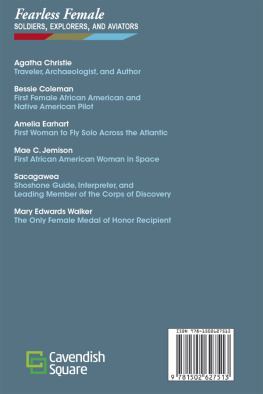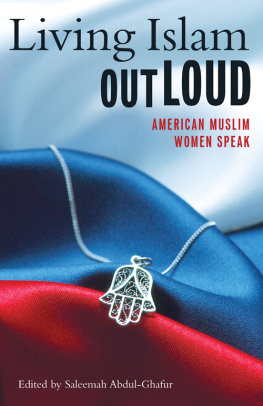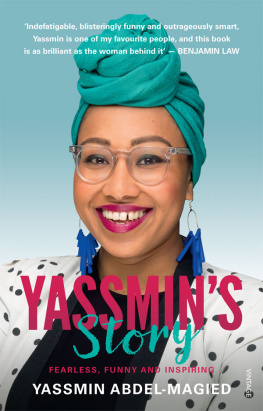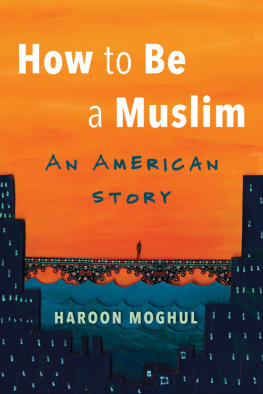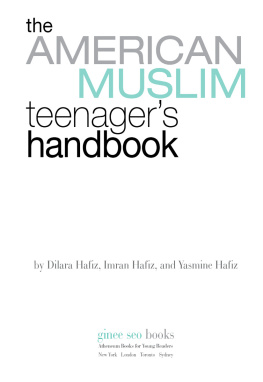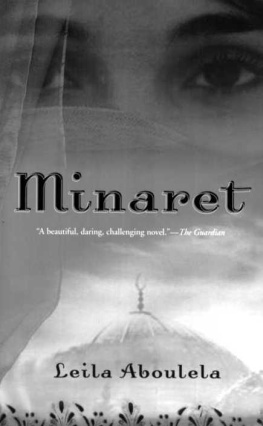This book is a memoir, not an autobiography. The stories and opinions recollected in these pages are based upon my memories and are true as I remember them. In some cases, names and identifying details have been changed, and some characters are composites of people who have passed through my life. In order to keep the story moving forward, I have also compressed time in some instances. If I had to describe exactly what this book is, Id say it is the true story of my life.
Muhammad? her voice trailed off. The substitute teacher, Ms. Winter, squinted and brought the list of names on the attendance sheet closer to her face. She was stuck, and I could guess why. She was looking at the seven letters in my first name and wondering how to pronounce it.
Is your last name Muhammad? she asked, her eyes fixed on me, the only fourth grader in the classroom wearing a hijab, who happened to be sitting in the front row.
Yes. I nodded. My eyes stayed glued in front of me.
And how do you pronounce your first name, young lady? she asked.
Its Ib-ti-haj, I said, pronouncing each syllable as slowly as possible. Its pronounced just like its written, I added. That usually helped people understand how to say my name, but it didnt help Ms. Winter. She made another face, the kind of face you make when your mouth lands on something bitter.
Oh, thats too hard, she said, shaking her head no and scribbling something down on the attendance sheet. Were going to call you Ibti.
Okay, I said aloud, but the way she said Ibti made my cheeks burn. I refused to turn my head to see if my classmates were laughing at me or, worse, pitying me for having a name that was too hard to pronounce.
During recess, I did some quick calculating in my head to be sure, but I was right. My friend Jennifer had eight letters in her name, and Elizabeth Brewster had nine in hers, and yet their names werent too hard. Their names didnt require shortening. Why did mine? Ibtihaj was the easiest name in the world to pronounce. All my friends could say it, and they were all only nine years old like me. Ms. Winter didnt even try to say my name.

The truth is, for as far back as I can remember, this sort of confusion has existed about who I am, and it always starts with my name. Ibtihaj. How do you say it? What does it mean? And then the way I identify myself leaves some people perplexed: Black but Muslim. Muslim but American. Hijabi but an athlete. Ive walked into many rooms and stood on stages where it was clear people didnt know what to make of me. When no one knows where you fit into the social order of color and creed, confusion ensues until order is restored. Until people understand who you really are; that is when they stop and listen.
And thats why I wrote Proud . I want people to understand who I really am and maybe other Americans like me who feel the same, to get to know the journey behind the headlines of the first US athlete to compete in the Olympic Games wearing hijab. I wrote this book because I wanted to chronicle my quest to challenge societys limited perceptions of what a Muslim woman, a Black woman, or an athlete can be.
I want people to know that much of my strength as an athlete comes from how high I had to climb to release myself from societys boxes and show up to the party even when an invitation was never extended to me. Along the way, I had to learn how to be tough and tenacious or risk losing the fight before it even started. I had to maximize my expectations for myself because no one else would, and I had to have the guts to pursue what I wanted even though it meant charting my own path. I didnt have any role models to look up to who looked like me in fencing, and there werent any other Muslim women wearing hijab at the elite levels of sport to inspire my quest. I had myself, my family, and my faith, and that was enough for me to persist.
Proud may seem like a familiar story, as this path Im on was forged by the men and women who came before meMuhammad Ali, Jackie Robinson, John Carlos, Althea Gibson, Serena and Venus Williams, Mahmoud Abdul-Raufathletes who defied the naysayers and triumphed over mountains of adversity. They had barriers thrust in front of them and doors slammed in their faces, yet they still triumphed both on and off the court. I hope that, when reading Proud , anyone who has had an opportunity taken from them because of their race, religion, or gender can find solace in these pages. I hope people feel empowered by my fight and know that they have every right to demand a place at the table of whatever life is offering.
If someone had told me that my life would unfold the way it hasfull of untold blessings and endless opportunitiesbecause I picked up a sword in high school at thirteen years old, I would have called him or her a liar. But I did pick up that sword, and despite the uphill battle, it has been a rewarding journey. It is my hope that everyone finds their own sword to wield in a way that brings them happiness and success, and that the word no becomes their motivation to press forward. Inshallah , so may it be.
In search of my mothers garden, I found my own.
ALICE WALKER
C ome on, Ibtihaj, my best friend, Amy, pleaded. She wanted me to come to her sleepover birthday party, but I knew the chances I would be able to go were slim to none. There was just no way it was going to happen. The rules were pretty clear in our house. No sleepovers. My father had already ruled them out before I even knew what sleepovers were. But I really wanted to go to Amys party. She was my best friend. Plus, all the girls at school were having slumber parties now, and I was convinced I was the only third grader at Seth Boyden Elementary School who wasnt allowed to sleep over at someone elses house. Usually, on Monday mornings when all the girls were talking about how much fun theyd had together at a party over the weekend, Id be stuck standing on the sidelines with nothing to add to the conversation.


